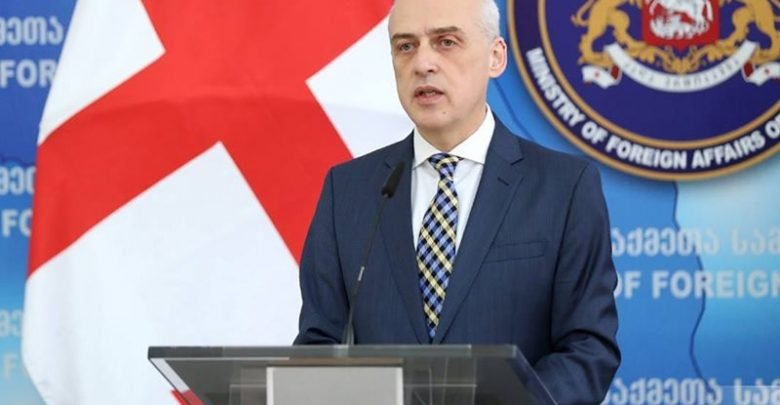
FM Zalkaliani: Georgia, Azerbaijan to Resume Border Delimitation Talks
Georgia and Azerbaijan agreed to resume border delimitation talks, Foreign Minister Davit Zalkaliani announced on May 2, few days after Azerbaijani border guards closed access to parts of the David Gareji Monastery, stirring wide-spread condemnation in Tbilisi.
Speaking to reporters, FM Zalkaliani said he has been in “regular communication” with his Azerbaijani counterpart, and that the two ministers have approached the issue in the spirit of strategic partnership.
“The joint commission will resume its work in the near future in order to reach an agreement on border delimitation and demarcation,” he said. Meanwhile, access to the disputed parts, according to Zalkaliani, will be allowed “in line with the existing practice.”
The Minister also said the matter is very “sensitive and delicate,” and called “on everyone to show great caution over the issue.” “We need to put aside emotions and let the commission hold talks in a calm environment,” he noted.
“I am sure that the issue will be solved positively; both Georgia and Azerbaijan agree that all these issues should be discussed and addressed based on our strategic partnership and friendly relations,” the Foreign Minister noted.
Statement of the Georgian Orthodox Church
FM Zalkaliani’s remarks followed the statement of the Georgian Orthodox Patriarchate, which said the decision to close access to parts of the monastery “caused rightful concerns among the public.”
“The monastic complex is one of the greatest holy sites, one of Georgia’s ancient cultural monuments and the Georgian church will do its utmost to protect it,” the statement reads. It added, however, that “active talks with Azerbaijan are underway and certain positive steps have already been taken.”
It also noted that the Patriarchate “categorically distances” itself from “attempts by individual clerics or civilians to worsen friendly relations” between Georgia and Azerbaijan, and “considers disrespectful remarks against Islam as a provocation both against other nations and Georgian Muslims.”
The statement was apparently referring to the sermon of Bishop Iobi (Akiashvili) of Urbnisi and Ruisi, delivered at the Davit Gareji Monastery earlier on May 2, where he said that the Orthodox Church has to make the first step to return the area under its full control. “If blood is needed, we, the clerics, should act in the first place, and give an example to the public,” he noted.
The Bishop also said talks about “Muslim countries” being Georgia’s friends are fraud. “This amounts to a Christian saying a Devil’s follower and a Devil’s servant is a friend; there is a spiritual earmark on Muslims and we remember very well that all of Georgia’s troubles were caused by such countries.”
During the Soviet times the monastery complex was split by administrative border with major part of the complex falling within Soviet Republic of Georgia and another portion within Soviet Azerbaijan. The two countries have been trying in vain to agree on the lay of the border since.
Azerbaijani officials have been periodically closing off access to the parts of the monastery under their control during the past decades, although most often the interruptions were temporary and lasted one or two days. The most recent one lasted for five days (April 21-26).
This post is also available in: ქართული Русский